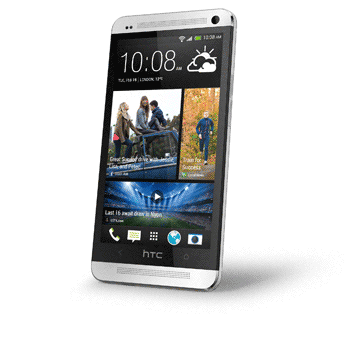HTC says lower-cost offerings will reverse its sliding smartphone market share. The Taiwanese company that once ranked as one of the top five smartphone makers now has less than 2% of the market, and sales have been on the decline for more than two years. Its flagship HTC One line has been more popular with critics than consumers, and now the company says that focusing on the high end of the market was a mistake it will not repeat. Co-founder Cher Wang told Reuters today that HTC “missed a huge chunk of the mid-tier market” last year and wants to offer lower-priced smartphones going forward.
HTC said today that its fourth quarter revenue of $42.9$T ($1.4 billion) was down 28% from the year-ago quarter, and that it expects the sales decline to continue into the first quarter of 2014. The company did post a $10 million Q4 profit, helped by an asset sale, after losing money for the first time in its history during Q3 2013. But HTC says it expects to lose money again during the current quarter.
Today’s disappointing financial outlook from HTC could have been compounded by news that the U.S. International Trade Commission would ban imports of some of its smartphones, but HTC has avoided this possibility by setting its patent lawsuits with Nokia. HTC has agreed to license non standards essential patents from Nokia, and Nokia says the two companies will also collaborate around HTC’s LTE patent portfolio. This suggests that Nokia will use its considerable clout in the intellectual property arena to help HTC license its LTE patent portfolio. Nokia is selling its device business to Microsoft for $7.2 billion, but is retaining its patent portfolio. Nokia will retain its patent portfolio and will grant Microsoft a 10-year license to its patents at the time of the closing.
This marks the third major patent settlement in the mobile device space within the last three months. HTC’s deal with Nokia follows the announcement of a 10-year licensing agreement the Taiwanese company reached with Apple. It also follows a major settlement announced last week between Samsung and Ericsson. Android device makers are apparently finding that licensing fees are less onerous than ongoing litigation, which brings with it the possibility of import bans.
Follow me on Twitter.

